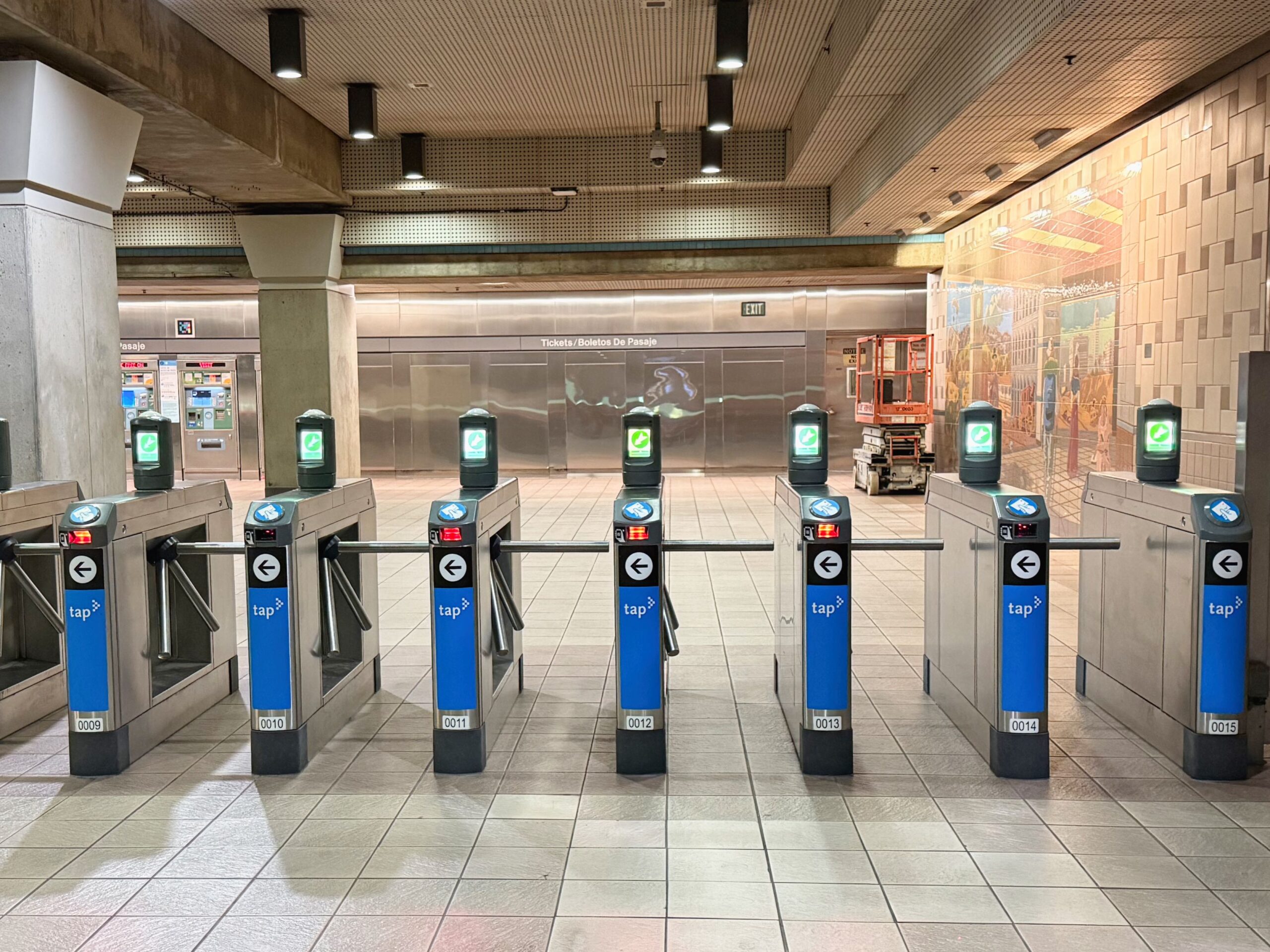By Mariana Paredes-Luna, Assistant Director, Organizing and Advocacy
May 16, 2025
LA Metro is spending a lot of public money on a fare system that returns very little revenue for the agency. Los Angeles County sales taxes mostly fund transit operations and capital expenses, with fares covering just 5%. This tiny sliver of profit comes from those who can least afford it: the low-income people of color who make up the majority of LA Metro riders.
To run this inequitable and expensive fare system, LA Metro has given more than $400M of taxpayer money to Cubic Corporation to design and operate TAP. Cubic is a private defense contractor that mostly focuses on weapons training for the military; a branch of the company also develops information technology systems for transit agencies.
Cubic Corporation clients include the U.S. Army, Navy, and Air Force as well as Australian and Canadian armed forces. Cubic has also provided weapons training tools to the Israeli Defense Force (IDF), which has killed more than 55,000 Palestinans in Gaza since October 2023. In 2013, the IDF paid Cubic $19.9 million for a combat simulator that allowed them to train on “a variety of small arms systems, from M16 and M4 rifles all the way up to morters and LAW and RPG rockets.” In 2021, Cubic was awarded a $32 million contract to deliver a training system for the F-35 combat aircraft, an investment “shared by 17 countries” according to the corporation’s press release. Israel was the first country to select the F-35 as part of a foreign military sale with the U.S. government, signing a Letter of Agreement in October 2010. The Israeli Air Force’s F-35 fleet was declared operationally capable in December 2017, and the aircraft are currently being used in attacks on Gaza.
LA Metro’s current vision of “community care” includes over policing and surveillance focused on enforcing the TAP fare system, and the continued investment in Cubic Corporation to maintain this status quo. Transit riders—and Los Angeles—deserve better. LA Metro should not be giving public funds to a corporation whose primary income stream depends on finding more efficient ways to kill children and families. Instead, they should be divesting from TAP and using public funds to support safety strategies that benefit everyone, and that actually work: clean, well-designed, well-lit stations and stops, and trained ambassadors who can connect riders in crisis to social services rather than jail. As it stands, LA Metro’s proposed budget for FY 2025–26 moves underutilized funding for mental health and crisis intervention resources into its new, in-house police force’s budget line.
A fareless transit system would allow users to ride freely and safely. Fare-free rides would increase mobility for the low-income riders who depend on the system, limit operator/rider disputes, increase the number of riders overall, and allow LA Metro to provide a more community-centered approach to safety that isn’t based on fare enforcement.
Investing in our communities, and not Cubic, keeps us all safe!
To learn more about what a universal fareless public transit system could do for Los Angeles, read our report.

